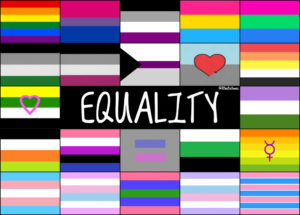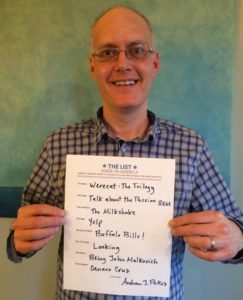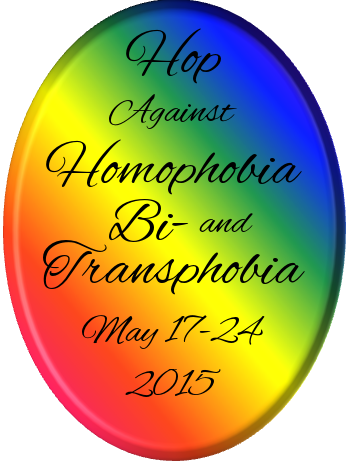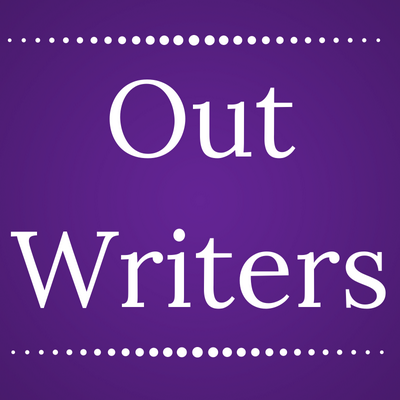A little while back, I saw a post in the YA LGBT Books discussion group on Goodreads, asking folks to donate books to a fledgling Gay/Straight Alliance (GSA) in Morris, Minnesota.
I pretty much instantly responded. In addition to my passion for LGBT YA, I spent eighteen years as a social worker for LGBT youth in suburban Long Island. This goes back a few decades (I share with a bit of 40-something humility) and to a time when there were zero GSAs in existence in the community.
I remember when the first high school GSA was launched amid a great deal of trepidation and some sensationalism. Many schools my organization dealt with had the attitude: “Well, that’s fine for that district, but it could never happen here.” I’ll reign in my reminiscences so I can get to the main point of my post. Suffice it to say, there were a lot of battle stories, and it was tremendously gratifying to witness schools turning a corner in the new millennium and now GSAs being the norm in Long Island rather than the peculiarity.
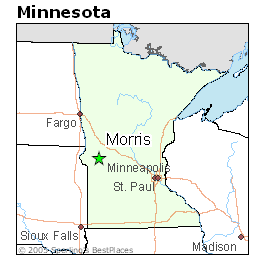
Map from Sperling’s Best Places to Live
I had to Google Morris, Minnesota. I learned it’s a small city in the western part of the state, surrounded by dairy farms, and home to a great state university. It’s a long way from Minneapolis-St. Paul, and I gathered that growing up LGBT in Morris is a far cry from the experience of urban and suburban teens. At least in Long Island, teenagers were aware of, and in some cases could participate in the adjacent, diversified New York City LGBT community. There were ‘out’ politicians, the Harvey Milk High School–the first LGBT high school in the country, and a huge annual Pride Parade. Rural areas tend to be more socially, politically and religiously conservative, so I imagined that the need for support in Morris was huge.
I sent the GSA advisor copies of my two YA titles, and a few days later I got back a thank you note from one of the students in the group. It was one of the most kind and thoughtful notes I’ve ever received. I asked the student if I could share it on my website, not to brag about my donation, but because she articulates so well the importance of LGBT YA to teenagers. I understand that the GSA has received over 40 titles as a result of the Goodreads announcement, and they welcome more. After the letter, I’ll include links to the thread where you can see how to help with the campaign, which I hope you will.
Dear Andrew J. Peters,
I am writing as the representative for the Morris Area GSA, a fledgling GSA, which has been sponsored by our school board for less than a year. This letter is being written as an expression of deep gratitude for donating books containing queer characters.
As you probably already know, today’s media is barren of representation for queer peoples, especially where gender is concerned. In many of today’s fictional novels targeted for young adults, the story features a straight, cisgender couple. If there is [sic] are queer characters, they are commonly shoved off as a side character, and a painful stereotype; a white, gay male who is flamboyant and obsessed with fashion, beauty, etc. To read a book containing any queer characters, there is a specific genre (usually titled “Gay and Lesbian”), and the stories tend to [sic] dramatic misinterpretations of what it means to be a queer person; not to mention, most queer characters are simply “gay,” with few characters exploring concepts such as bisexual, and almost no books with a transgender/otherwise genderqueer character.
I, as a young queer person, frequently found myself feeling invalidated growing up. The age when you are learning who you are is a very impressionable time. My early developmental years were spent in an area where “queer” was never even a topic. The lack of representation of queer people is detrimental to queer children. I felt as if I was wrong because I didn’t fit in with what society expected of me. Some people who have never experienced this may say the lack of affirmation of who they are does not bother them. The truth is, many queer people try to force themselves to fit into roles they were assigned rather than let themselves be who they truly are simply because they never were taught it was okay.
That’s why what you’re doing is so wonderful. Our GSA is filled with young, queer people who struggle with their own identities, whether because of people within their own life, or they are just trying to figure out who they are. These books provide comforting, realistic characters whom we can relate to and even learn with. The inclusion of queer characters is a refreshing change of pace and a fantastic feeling of validation for those of us who never feel that way otherwise. It’s one of the best feelings to know that who you are is okay, and I thank you. Truly.
Sincerely,
Teresa Boyd
Secretary of the Morris Area GSA
And Morris Area GSA members
Thank you, Teresa for bravely making the GSA possible so that other queer students have a place to gather safely and support each other.
If you would like to get involved, check out the thread from YA LGBT Books on Goodreads. My thanks to Kaje Harper for letting me know about the cause!

